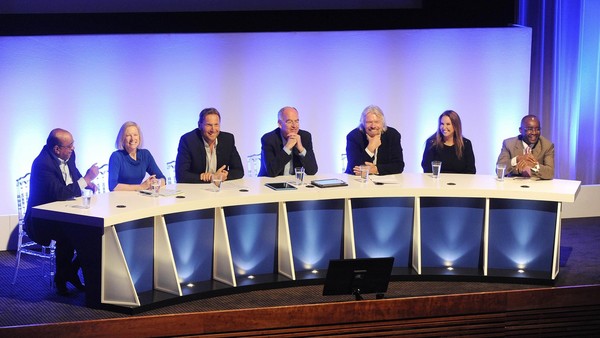Business leaders back ambitious emissions reduction target
Pilita Clark
The chief executive of Unilever, the maker of Dove soap and Lipton tea, has urged world leaders to slash greenhouse gas emissions to virtually zero within 35 years as global climate deal negotiations intensify.
Paul Polman’s call makes Unilever one of the first large businesses to throw its weight behind a contentious goal to reduce emissions to “net zero” by 2050.
This would mean fossil fuels such as coal and gas could only be burnt to generate electricity or heat homes if the resulting emissions were eliminated by, for example, capturing and storing them underground before they warmed the atmosphere.
“The net-zero emissions by 2050 target is not only desirable but necessary,” said Mr Polman, who has a long history of promoting environmental action.
“This is not going to be easy, but the earlier we act, the greater the economic opportunities will be,” he said in a statement released by The B Team, a group co-chaired by Sir Richard Branson, Virgin Group founder, that promotes an environmentally responsible private sector.
Consumer goods companies such as Unilever and P&G generally face far less of a challenge to cut their greenhouse gas emissions than big energy users or producers. Both groups have outlined ambitious plans to reduce their emissions and Unilever says it has cut emissions from its own manufacturing operations since 2008.
Sir Richard told the Financial Times the net-zero goal would mean existing oil and gas companies such as ExxonMobil and Royal Dutch Shell could no longer exist in their current forms by 2050, but he believed they had the wealth and competence to become cleaner energy producers.
He said the 2050 goal would not necessarily mean the end of airlines such as the Virgin Atlantic group he founded.
“The world wouldn’t stand for that and the world wouldn’t function like that,” he said, adding Virgin was working with groups developing cleaner aviation fuel and that by 2050 such products should be far more widespread.
The net-zero target is one of a range of options officials from nearly 200 countries will discuss in Geneva next week, when they meet to consider the outlines of a draft negotiating text for the global climate pact due to be signed in Paris in December.
At least 98 countries have expressed varying levels of support for some form of long-term emissions goal to be in the climate deal, according to Farhana Yamin, a lawyer specialising in climate negotiations who heads Track 0, a non-profit group advocating the net-zero emissions target.
But leading emitters, including China, the US and India, had yet to give formal backing to a long-term goal, she said.
The net-zero emissions goal would toughen an already agreed target that countries adopted nearly four years ago in UN climate talks to stop global temperatures rising more than 2C from pre-industrial times.
Khalid Abuleif, lead climate negotiator for Saudi Arabia, the world’s leading crude oil exporter, has told the FT a move that would in effect phase out fossil fuels as early as 2050 was unrealistic.
“We really don’t think it’s realistic at this stage with the current technology and current economic model base we have,” he said at the December UN climate talks in Lima, Peru.
Some countries have suggested it would be better to have a net-zero emissions goal by 2100, not 2050.
But the B Team leaders, which also include Indian industrialist Ratan Tata, said scientists had concluded that achieving net-zero greenhouse gas emissions by 2100 would only provide a 66 per cent chance of limiting global warming to 2C.

